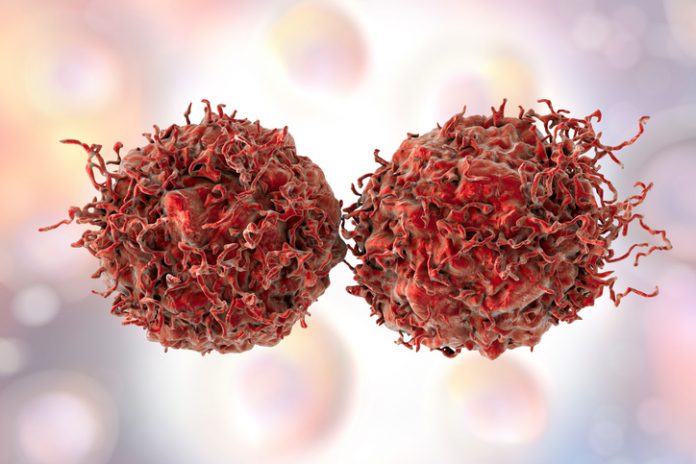
University of Sheffield scientists have discovered a novel form of immunotherapy that utilizes nanoparticles to activate immune cells to kill cancer cells and delays resistance to powerful first-line treatment. This study in mouse and human prostate tumors could help men with prostate cancer to live longer.
The findings are published in the Journal for Immunotherapy of Cancer in an article titled, “Targeting a STING agonist to perivascular macrophages in prostate tumors delays resistance to androgen deprivation therapy.”
“Androgen deprivation therapy (ADT) is a front-line treatment for prostate cancer. In some men, their tumors can become refractory leading to the development of castration-resistant prostate cancer (CRPC). This causes tumors to regrow and metastasize, despite ongoing treatment, and impacts negatively on patient survival,” the researchers noted.
Through their analysis, the research team discovered that macrophages accumulate in large numbers around blood vessels in prostate tumors during ADT. They then developed a way of using novel nanoparticles to selectively deliver a drug to these cells that makes the macrophages express a potent immunostimulant called interferon-beta. When this is released inside tumors, it stimulates other immune cells called T cells to kill cancer cells, and this delays treatment resistance.
Claire Lewis, PhD, a professor from the University of Sheffield’s, School of Medicine and Population Health who led the study, said: “The onset of resistance to hormone therapy is a major clinical problem when it comes to treating men with prostate cancer as their tumors then start to regrow and spread. Once this happens, their disease is difficult to treat and harsher treatments like chemotherapy have to be used.
“Until now, immunotherapies for prostate cancer have been disappointing, with few men responding well to treatment. Carefully analyzing the way that immune cells in prostate tumors are inhibited by hormone treatment helped us to develop a way to overcome this, and prevent resistance to hormone therapy.
“We’re excited by the potential of this new form of immunotherapy to enhance the response of prostate tumors to hormone treatment. We are now working with our clinical colleagues to explore ways to take this forward into clinical trials as soon as possible.”
Hayley Luxton, PhD, research impact manager at Prostate Cancer UK, who funded the study, said: “Over 12,000 men die from prostate cancer each year in the U.K., and we desperately need new and more effective treatments. Immunotherapy has completely changed the way other cancers are treated, but we haven’t yet seen anything even close to that success for men with prostate cancer.
“We’re thrilled to have funded this research which shows a new form of immunotherapy can give men much more time before their cancer becomes resistant to hormone therapy. It will be really exciting to see how it performs in future clinical trials, and we hope it will play a pivotal role in finally unlocking the potential of immunotherapy for men with prostate cancer.”





